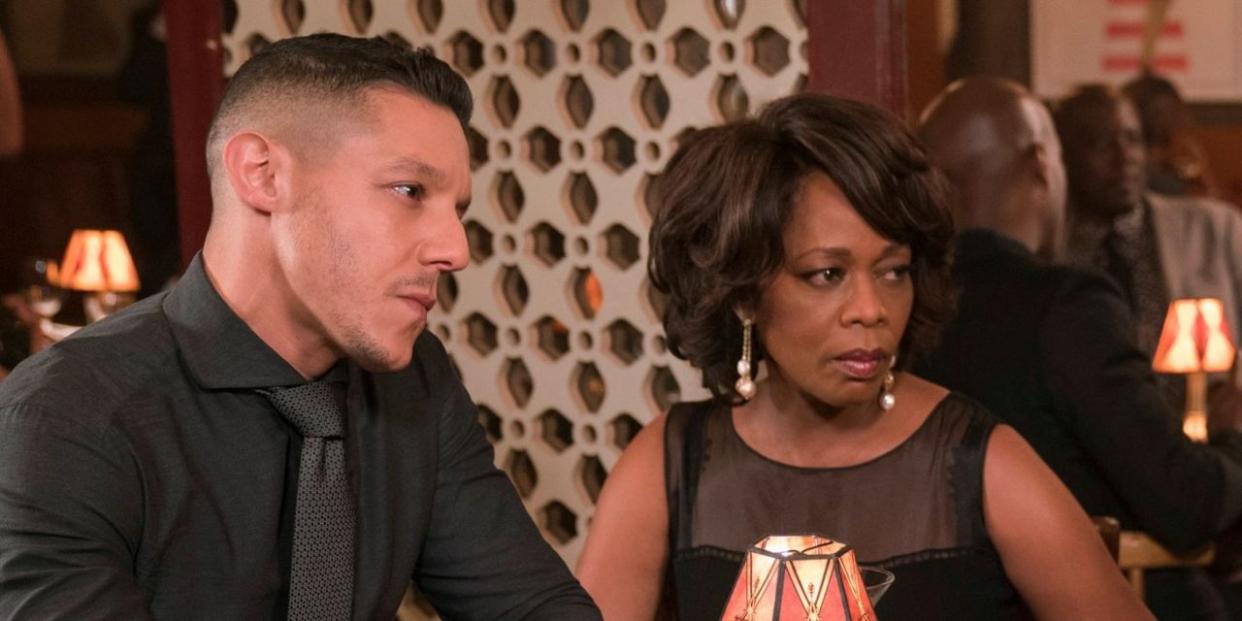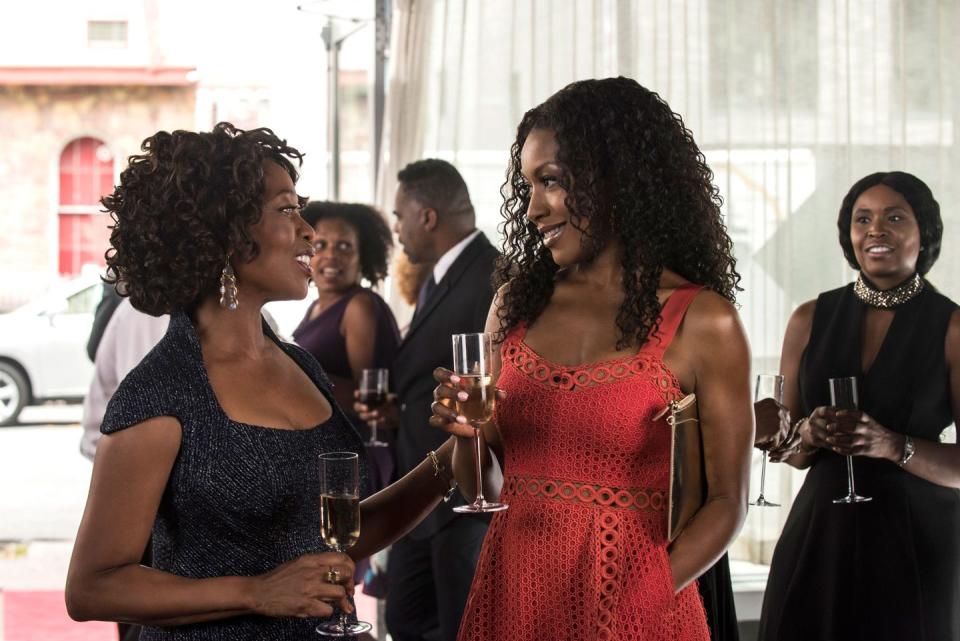Luke Cage season 2 has a big problem…

Warning: This article contains spoilers for Luke Cage season 2
The first season of Netflix's Luke Cage was one of the more important recent series on television. Telling the story of a black superhero in Harlem, playing off a deep knowledge of the local culture and featuring an almost exclusively non-white cast, it was a series that was able to riff on many facets of the black experience in America.
The show should, in theory, now be digging even deeper into the mire of corruption and injustice explored so far (with plenty of superhero shenanigans to boot, naturally), but Luke Cage is frustratingly content to merely repeat what worked in the first season.
Things actually start pretty well, with the Lucy Liu(!)-directed first episode bringing the action in a slicker, more dynamic way – and with a surprising moment of gory violence that you suspect might have its roots in Liu's time working with Quentin Tarantino.

Misty Knight, now crippled after losing an arm during The Defenders, struggles to regain her sense of control and authority, and the show doesn't shy away from depicting the stark reality of her new situation. The series, whether as intentional homage or not, quotes The Wire on several occasions, and phrases like "Make America Great Again" turn up.
It all feels relevant and fresh and promises another significant season to come. After all, if any superhero series is fit to truly address Trump's America, it is Luke Cage.
It's a shame, then, that things go downhill rapidly. The more interesting side characters begin to disappear: first Claire Temple bows out after only a few episodes, and then Luke's likeable chess-playing pal Bobby Fish departs. Even Luke Cage himself disappears into the sidelines of his own series at times, with the focus on Mariah Stokes becoming ever greater.
Alfre Woodard is a phenomenal actor, but much of Mariah's story is almost a direct repeat of what came before (seriously, count how many times she yells "I'm the victim here!" at people). Mariah once again wrestles with the Stokes and Dillard (read: gangster and politician) sides of her life; she again tries to get out of the crime world before being sucked back in; she again delivers political speeches in her best 'white lady voice' and again attempts to open community spaces. The only difference is that her daughter is along for the ride.

Worst of all, though, is the way Mariah is lumped with Shades (Theo Rossi) as a romantic partner. For one thing, Shades has been entirely neutered this season – how has a man that once lorded it over Cottonmouth become such a wet blanket? The pair have absolutely no romantic chemistry whatsoever, and scenes between them become repetitive at best, and excruciating at worst. Separate they each have some of the series' moments, but together they're the biggest drag on the season by far.
It shouldn't be that the guests from other shows are what bring this one to life, but all too often, that's exactly what happens. Colleen Wing (Jessica Henwick) from Iron Fist cameos to demonstrate that she and Misty stayed friends, Foggy Nelson from Daredevil arrives when Luke finds himself in legal trouble, and Elden Henson is immediately a breath of fresh air, bouncing off Mike Colter in a way that nobody else on the show does. Even Iron Fist (Finn Jones) himself shows up later in the season.
These characters' appearances provide fresh perspectives and new dynamics, and offer a welcome break from Mariah and Shades' unconvincing romance, and discussions of the myriad family beefs that happened generations ago. "Show don't tell" isn't always the best rule – telling can be just as compelling – but at a certain point the show must base its stories on things happening in the here and now. Luke Cage season 2 is as obsessed with the past as its villains are.

Bushmaster (Mustafa Shakir) makes a reasonably effective antagonist, but part of what really hamstrings the season is that Bushmaster's beef is with Mariah and her family, not our hero. It means that Luke is merely flitting around the edges of a battle that only tangentially involves him.
Related: Luke Cage season 3: Release date, cast, villain and everything you need to know
There are, as mentioned, some brilliant moments, especially as the season nears the business end. An unexpectedly heartfelt scene between Shades and his old pal Comanche is a stand-out: it's beautifully framed, written and acted, and lends the series a moment of Moonlight-esque tenderness that has great impact.
A similar face off between Mariah and her daughter Tilda is surprising in a different way – a heartbreaking, fearsome and savagely cruel diatribe delivered from mother to daughter that is shattering in its brutal honesty and tragic given the story behind it. It's by far the best work Alfre Woodard has done across either series – and that's saying something (no coincidence these two great moments occur when Mariah and Shades are apart).
There's remains a strong argument to be made, though, that Luke Cage might have been better off ditching both Mariah and Shades at the close of its first year and exploring entirely new pastures here. "Move forward. Always." ran Pop's mantra in season one. It's a shame the series didn't take that advice.
Luke Cage season 2 is streaming now on Netflix.
Want up-to-the-minute entertainment news and features? Just hit 'Like' on our Digital Spy Facebook page and 'Follow' on our @digitalspy Instagram and Twitter account.
You Might Also Like

 Yahoo News
Yahoo News 